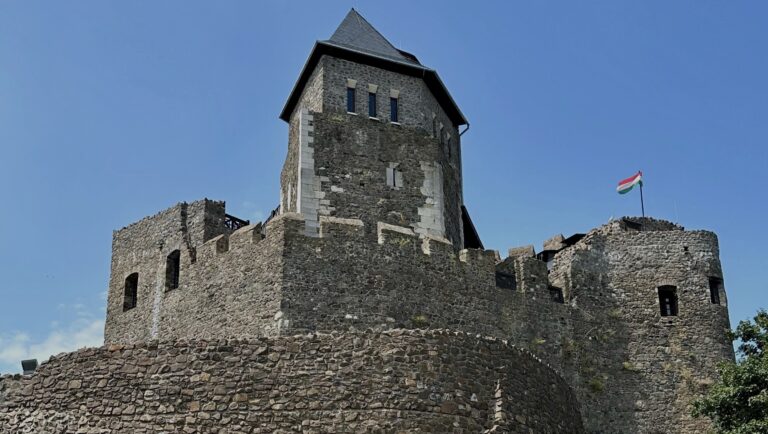The American Anti-Defamation League (ADL) has been measuring the prevalence of anti-Semitism and anti-Semitism worldwide for years. In Hungary, the survey was carried out for the fourth time this year, revealing that apparently, 2.9 million Hungarians hold anti-Semitic views.
If this was indeed the case, it would mean that Hungary is the most antisemitic country in the whole of Europe,
while, according to ADL, the number of anti-Semites in Ukraine has halved.
In its survey, the organisation measured the level of anti-Semitism of the country’s residents based on various statements about Jews, Hetek.hu reported.
In 2014, when the League conducted its first such survey in Hungary, 3.4 million Hungarians agreed with various anti-Semitic theories or concepts, while a year later, 100,000 fewer people held such views.
Four years ago, anti-Jewish sentiment in the country rose slightly, and again more than 90,000 people seemed to agree with anti-Jewish theories.
Of the statements featured in the questionnaires, the one that the largest percentage of Hungarian respondents agreed with was ‘Jews have too much power in the business world’ (58 per cent). It is interesting to note that this view was most strongly held by those aged 50 and over and those aged 35–49, with only 46 per cent of those aged 18–34 regarding this statement as true.
If we break down the responses by religion, we find that 59 per cent of Christians and 52 per cent of atheists and non-religious people agreed with this statement.
The proportion of those who believe in the conspiracy theory of the ‘Jewish domination’ of international financial markets was similarly high (the exact statement in the questionnaire being ‘Jews have too much power in international financial markets’).
In Hungary, almost half of respondents also said they agreed with the oft-stated accusation that Jews are more loyal to Israel than to the country in which they live.
Interestingly, this idea is most widely accepted in the middle age group, i.e. in the 35–49 demographic, with half of Christians holding this view, compared to only 38 per cent of atheists and non-religious people. Almost half of Hungarians also think that Jews have too much power to influence world events.
Almost half of Hungarians also think that Jews have too much power to influence world events, and there is little difference between being Christians and non-Christians in this respect.
An equal proportion of Hungarian respondents (43 per cent) went along with the idea that Jews ‘still talk too much” about the Holocaust and that Jews have ‘too much control over the global media”. In both cases, the 35–49 age group is the most likely to believe these claims.
Survey respondents agree to the lowest degree with the statement that Jews are responsible for most of the world’s wars and that people hate Jews ‘because of the way they behave”.
In the Eastern European region, men are generally more anti-Jewish (39 per cent) than women (30 per cent), and those over 50 are the most likely to believe in antisemitic stereotypes.
Taking religion into account, 35 per cent of both Christians and atheists agreed with anti-Jewish statements, compared to only 20 per cent of Muslims.
Or so goes the ADL research.
The question is: do these figures reflect the experience of the Hungarian Jewry?
While in most countries of Western and Northern Europe, where a significant Jewish community survived the Holocaust, Jews are plagued by a series of anti-Semitic atrocities, in Hungary Jews have basically nothing to fear at present. While synagogues have been attacked in the United States and Germany in recent years—and before that, in Denmark—which resulted in the deaths of Jews or onlookers, no such attack has happened in Hungary since the 1940s.
In January and February this year, the website of the Action and Protection Foundation (TEV), a Jewish watchdog that monitors antisemitic incidents in Hungary, reported nine acts of hatred against Jews in total, six in February and three in January, and even these were predominantly hate speech acts. As reported by the European Union Agency for Fundamental Rights (FRA), the Action and Protection Foundation, through its Brussels Institute, recorded 37 antisemitic acts in Hungary in 2021. By comparison, in France there were 589 recorded antisemitic actions and threats in the 2021. In the same year, in Germany 3027 incidents were recorded. In addition, as highlighted by FRA, when looking at 2013–2021, the overall trend in Hungary was that ‘the number of recorded antisemitic incidents is decreasing, despite an increase in the recorded number of antisemitic incidents from 30 in 2020 to 37 in 2021. Most of these incidents involve hate speech, followed by vandalism.’
What is certain is that although different organisations report different numbers,
they all agree that in 2020, no more than 70 such events happened, of which only one was physical in Hungary.
Meanwhile, kosher slaughter, which is banned in many Western countries such as Belgium, is protected by law in Hungary as part of religious freedom. Hungary regularly stands up for Israel in international forums, and Hungary does not vote against Israel in the EU or the UN.
Hungarian Jewry is experiencing a cultural and religious renaissance. New synagogues are opening, old ones are being renovated, kosher hotels and restaurants are opening all over the country. Hungary is a popular destination for Israeli tourists. Holocaust research, unlike in Poland, is unrestrained, Jewish news portals and newspapers abound, and the various Jewish groups are busier battling each other than rising antisemitism.
As a scholar of antisemitism, I do not wish to debate ADL’s numbers nor question their intent in publishing them. But I believe that any poll which pictures Hungary as a centre of antisemitism while claiming that Ukraine, a war-torn land from where Jews are leaving for Israel en masse, is a better place for Jews to live,
has simply asked the wrong questions.
Perhaps many Hungarians do believe in some unfortunate stereotypes about Jews. But their beliefs do not translate into violent action or hate speech. The same cannot be said of some of the immigrants, primarily Arabs and Muslims, in Western and Northern Europe.
Despite ADL’s poll, Hungarian Jews can still walk the streets of Budapest in peace. It would be best if the same were true in London, Stockholm and Brussels, too.








